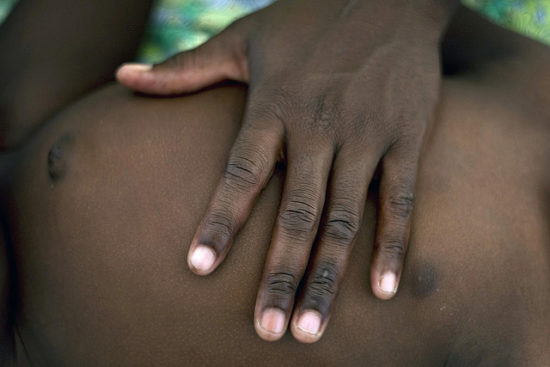
August 18, 2016; New York Times
In January 2010, a catastrophic 7.0M earthquake struck Haiti with an epicenter near the town of Léogâne, killing anywhere from 100,000 to 316,000 people and displacing an estimated three million inhabitants. Ten months later, what would become the world’s worst cholera epidemic in modern times, killing at least 10,000 people to date and sickening an estimated 800,000 more, broke out in the rural Center Department of Haiti, about 65 miles north of the nation’s capital, Port-au-Prince. By the first ten weeks of the outbreak, cholera had spread throughout Haiti.
Those outside Haiti assumed that the earthquake somehow caused the outbreak. However, researchers found that between 1985 and 2004 there were only three serious outbreaks of cholera in more than 600 natural disasters. Moreover, the outbreak would have required the preexisting presence of the Vibrio cholerae bacterium. Cholera had not visited Haiti in the previous 100 years.
The Haitians immediately suspected the newly installed contingent of Nepalese UN peacekeepers (where cholera is continuously endemic) as having carried the disease with them to Haiti. In a country with no working sewers and roads that are often too decrepit for tanker trucks, sanitation infrastructure is at best makeshift. These UN personnel dumped their contaminated waste into a major river.
Even as evidence mounted in the early months and then over the years for its culpability (studies traced the bacterial strain of cholera as being similar to the strain in Nepal), UN officials stubbornly denied responsibility—until now. Philip Alston, a New York University law professor and one of the UN’s special advisers, issued in the bluntest possible language a confidential report about the cholera epidemic, seen by the New York Times, that the UN could not dispute.
Sign up for our free newsletters
Subscribe to NPQ's newsletters to have our top stories delivered directly to your inbox.
By signing up, you agree to our privacy policy and terms of use, and to receive messages from NPQ and our partners.
The office of Secretary General Ban Ki-moon has acknowledged that the United Nations played a role in the initial outbreak and that a “significant new set of UN actions” will be needed to respond to the crisis. The secretary general’s acknowledgment, by contrast, stopped short of saying that the United Nations specifically caused the epidemic. Nor does it indicate a change in the organization’s legal position that it is absolutely immune from legal actions, including a federal lawsuit brought in the United States on behalf of cholera victims seeking billions in damages stemming from the Haiti crisis.
In an update, the New York Times reported that the UN’s “auditors found that poor sanitation practices remained unaddressed not only in its Haitian mission but also in at least six others in Africa and the Middle East.” Despite the horrific and shameful lessons learned in Haiti, UN peacekeepers throughout the world are still lax in their adherence to established protocols for wastewater, sewage, and hazardous waste disposal.
Whomever is to blame, whatever the consequences should be for the UN’s years-long stonewalling and the consequent impasse for those Haitians seeking redress, and whether and how much suffering Haitians should be compensated, the cholera epidemic in Haiti must still be eliminated. To date, the cholera eradication program in Haiti has failed.
Infection rates have been rising every year in Haiti since 2014, as the [United Nations] struggles to raise the $2.27 billion it says is needed to eradicate the disease from member states. No major water or sanitation projects have been completed in Haiti; two pilot wastewater processing plants built there in the wake of the epidemic quickly closed because of a lack of donor funds.
Even though the world’s attention long ago moved on, Haiti needs and deserves the political will, sustained attention, and above all else the money to help build new sanitation systems, to supply vaccines, and to closely monitor the progress made against this devastating disease. Perhaps the UN’s qualified confession to culpability will help move itself and the world to finish what they never really started in Haiti following the earthquake. The UN is not the only inter-governmental and international organization accused of stonewalling and shoddy work that is in need of redemption.—James Schaffer











